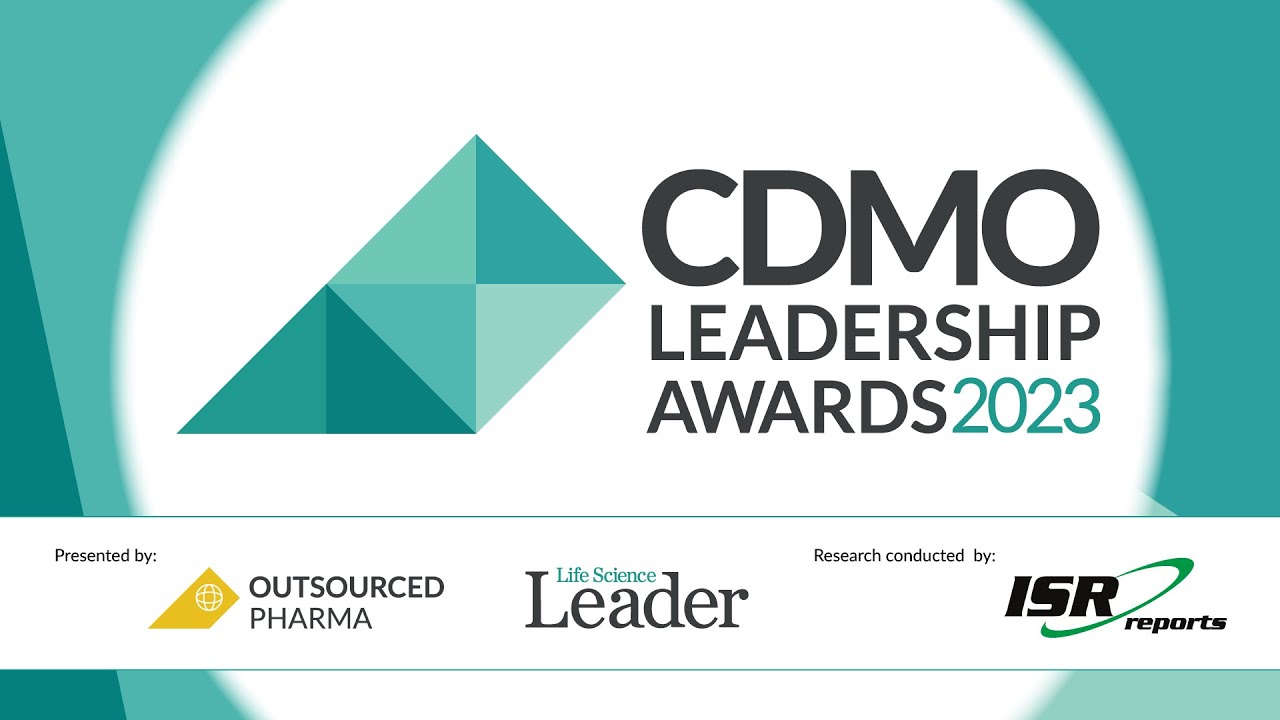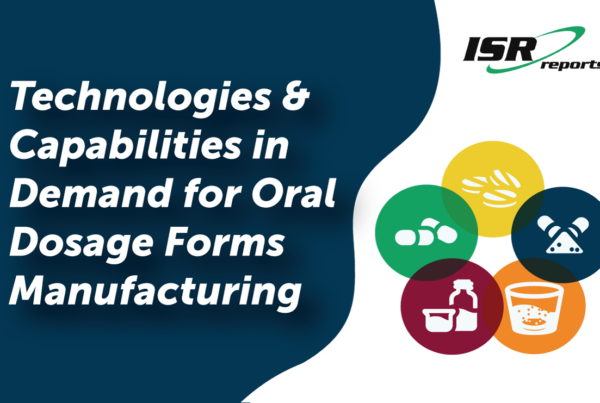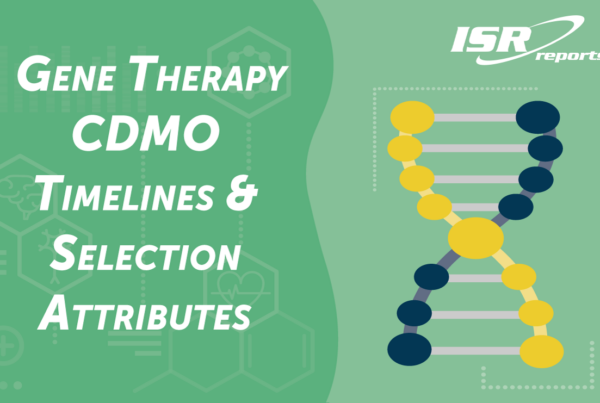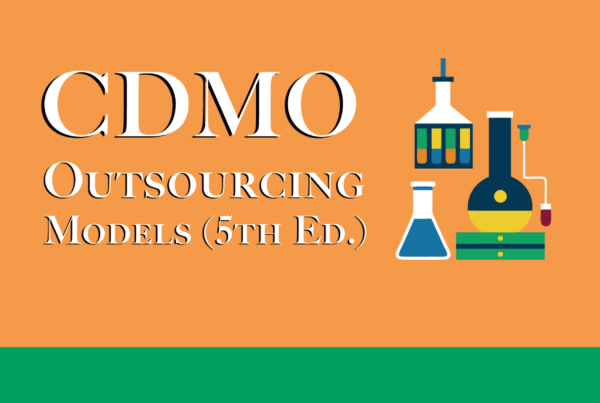2023 is the 12th year of Life Science Leader’s annual CDMO Leadership Awards, where contract manufacturers are recognized for their ability to deliver above and beyond the expectations of their drug innovator clients.
The awards are the result of sponsor feedback obtained through four different quantitative surveys about outsourced manufacturing: biologic API, biologic drug product, small molecule API, and small molecule drug product. The market research is conducted by Industry Standard Research (ISR), a full-service research provider to the biopharmaceutical and biopharma services industries.
To participate in the surveys, invitees are screened for decision-making influence and authority and asked about their areas of expertise. Contributors are then routed to the surveys that match their roles and responsibilities with respect to outsourced manufacturing. ISR’s data collection method accumulates feedback on a detailed service level, which is available in our annual CDMO Benchmarking reports. The service level feedback is aggregated to form company level scores for the CDMO Leadership Awards.
Experience-Based CDMO Evaluations
Five hundred and thirty-six people involved in outsourced manufacturing offered feedback on their experiences with the CDMOs that have supported their manufacturing needs for both products in development and on the market. This year’s participants work at biopharmaceutical companies of all sizes; 42% come from large pharma companies with an annual R&D over $1B. One-third of respondents (36%) work at midsize companies with an annual R&D between $100M and $1B and one-fifth (22%) work at new and emerging companies with an annual R&D under $100M. The bulk of participants work for biopharmaceutical companies with a headquarters in North America (60%), while 30% work for companies based out of Europe and the remaining 10% are headquartered in the Asia-Pacific.
Respondents to the surveys evaluate the contract manufacturers they have worked with in the past 18 months on 23 different performance metrics, making the CDMO Leadership Awards experience-based as opposed to perception- based. Experience-based data is important because it is focused on how well a supplier delivers its services for its customers instead of perception-based metrics that are focused on a CDMO’s reputation in the industry — a product of marketing, public relations spin, and potentially some customer satisfaction mixed in. When it comes to making informed CDMO selection decisions, data on how well a manufacturer executed its contracted responsibilities for customers is truly valuable information, in part because perception often doesn’t match reality.
CDMO Leaderships Awards Categories
The performance metrics on which CDMOs are evaluated include attributes related to company strengths, the CDMO’s capabilities, staff characteristics, service offerings, and more. These attributes form the six main award categories: Capabilities, Compatibility, Expertise, Quality, Reliability, and Service. Each award category is composed of four to six metrics, which helps sponsors understand how each of the included CDMOs has delivered its services for its customers relative to their expectations.
The 2023 awards reflect 1,586 service encounters with more than 70 contract manufacturers. ISR aggregated these data to establish the industry averages for each award category. Individual CDMO’s scores are then compared to the industry average in each category, as well as in each respondent group breakout, to identify the winning CDMOs — companies that have exceeded customer expectations across their entire service offering.
Most Important CDMO Selection Critera
While the focus of the research is to understand how well each CDMO performs for its customers, before research participants reach the CDMO evaluation stage of the survey, they are asked which CDMO attributes they prioritize when choosing a provider. This year, we thought it would be interesting to see how well CDMOs perform as an industry on the selection metrics that matter the most among outsourcers when choosing a supplier. To do so, we aggregated the data across the four studies to identify the leading traits that outsourcers classified as the “Most Important” CDMO selection criteria and compared the results to the industry averages for each of the corresponding performance metrics. For our analysis, we focused on the 20 overlapping characteristics between the selection attributes and performance evaluations.
Comparing Selection Metric Importance to Performance Results
The data show that collectively, the CDMO industry is meeting but not exceeding outsourcers’ expectations. Across all of the performance metrics, the industry averages are in the “meets expectations” range. This is a good thing, and certainly challenging since the metrics cover everything from Ability to smoothly scale up manufacturing to being Well-regarded in the industry. However, sponsors are regularly hoping their CDMO will exceed their expectations, which frequently leads to additional work in the form of preferred provider relationships or strategic partnerships.
Keeping in mind that CDMOs are meeting the expectations of outsourcers, when comparing sponsors’ selection metric importance to the CDMO industry average performance score on those metrics, CDMOs perform relatively poorly. Sponsors’ most important selection driver, Reliable on-time delivery, tops the list for CDMO selection yet lands in 16th position when it comes to CDMOs’ ability to meet the on-time delivery expectations of outsourcers. A Strong regulatory track record takes second for selection metric importance. Contract manufacturers fared better on this metric than on-time delivery; the relative rankings for selection versus performance are six rungs apart (second and eighth) as opposed to the 15 separating the selection importance of Reliable on-time delivery and the industry’s performance.
The third most important metric in terms of CDMO selection is having the Required dosage form and/or API manufacturing capabilities. This makes a lot of sense as a selection attribute and suppliers are doing satisfactorily (10th place) with respect to the CDMO industry average performance score. Fourth place for selection metric importance goes to Has capacity to meet our demands. CDMOs earn their highest performance ranking (sixth) on this trait, just two ranks away from its standing as a selection metric. The Ability to smoothly scale up manufacturing fleshes out the top five “Most Important” attributes regarding CDMO selection. As a performance metric, the Ability to smoothly scale up manufacturing score for CDMOs netted 12th position.
Where Are CDMOs Performing Best?
When comparing selection metrics and performance evaluations, the data show there are not any overlapping attributes among the “Top Five” between the two groups. This might lead one to think, “what are CDMOs doing well?” The highest industry averages for CDMO performance are: Stability testing capabilities, Well-regarded within the industry, Scientific knowledge, Regulatory support, and All facilities fully owned. Check out our manufacturing market research reports to learn about the best CDMOs in the industry as identified by their current and recent customers.
Survey Methodology: Industry Standard Research’s Contract Manufacturing Quality Benchmarking research is conducted annually via online surveys. For the 2023 CDMO Awards data, more than 70 contract manufacturers were evaluated on 23 different performance metrics. Research participants were recruited from biopharmaceutical companies of all sizes and screened for decision-making influence and authority when it comes to working with contract manufacturing suppliers. Respondents only evaluate companies with which they have worked on an outsourced project within the past 18 months. This level of qualification ensures that quality ratings come from actual involvement with a business and that companies identified as leaders are backed by experiential data.
Primary market research data in this article were powered by the ISR Health Panel. Want to contribute to thought leadership pieces and help to make the pharma industry better? Join today.






